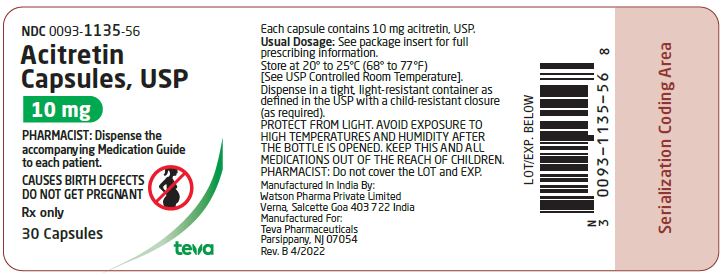Today we will be talking about acitretin, a medication that plays a crucial role in dermatology. Acitretin is an FDA-approved drug primarily used to treat severe skin conditions like psoriasis. However, it also has off-label uses that make it valuable in the medical field.
Healthcare professionals, such as nurses and pharmacists, play a vital role in managing acitretin treatment. They use their expertise to ensure the safe administration of the drug and closely monitor for any potential side effects.
Additionally, they explain the complex way acitretin is processed by the body (pharmacokinetics) and help patients understand any situations where its use may not be recommended (contraindications) or could be particularly dangerous (boxed warning).
For patients, it’s crucial to follow the recommended guidelines when taking acitretin. This includes undergoing regular pregnancy testing because the drug poses a high risk to pregnant individuals. By being well-informed and guided by healthcare professionals, you can confidently and responsibly use acitretin.
As always, please consult a medical professional for more information.
What is Acitretin used for?

Acitretin, a powerful oral medication, is primarily used to treat severe skin disorders, especially psoriasis. It belongs to a group of compounds called retinoids, which are closely related to vitamin A.
How Acitretin Works
In the fight against psoriasis, acitretin is an effective treatment option because of how it specifically affects skin cells. Unlike other medications that only address the symptoms, acitretin targets the underlying cause by:
- Regulating the turnover and growth of skin cells
- Reducing inflammation
- Improving symptoms like redness and scaling by restoring normal skin cell development
By regulating this process, acitretin not only treats existing psoriasis flare-ups but also helps prevent new ones from occurring. This dual action makes it beneficial for individuals dealing with this chronic condition.
Can I Purchase Acitretin Over the Counter?
The straightforward answer is no, you cannot purchase acitretin over the counter. Here’s why:
- Regulated Medication: Acitretin is a potent retinoid medication and, due to its strength and potential side effects, it falls under prescription-only status. This regulation ensures that a healthcare provider assesses its suitability for each patient.
- Safety Measures: The requirement for a prescription is not just about legality; it’s a safety measure. Acitretin has significant risks, especially in pregnancy, and healthcare providers need to ensure patients are fully informed and monitored.
- Controlled Distribution: By controlling the distribution of acitretin through prescriptions, authorities can better prevent misuse and manage the risk of severe adverse effects.
Remember that while you might encounter products labeled as “acitretin cream” online or abroad, these should be approached with caution. Only use medications that have been prescribed by your healthcare provider to avoid any health complications.
Guidelines for Taking Acitretin Medication Safely and Effectively
Acitretin therapy is a unique journey for each individual, necessitating personalized dosage instructions. Typically, the medication is taken once daily with a meal or milk to optimize the absorption of the medication. To enhance absorption:
- Take the capsule whole, do not crush or chew.
- Administer consistently in relation to meals.
Remember that only a healthcare professional can decide the correct dose and duration of treatment. Regular follow-ups are necessary to monitor progress and make adjustments if needed.
Dosage modifications must be done solely under medical supervision. Self-adjustments could lead to undesirable outcomes or hinder therapeutic benefits.
Precautions to Follow During Acitretin Treatment
When taking acitretin, there are several important precautions you should take to ensure safe and effective treatment:
- Pregnancy: If you are pregnant or planning to become pregnant, it’s crucial to understand the high risk of birth defects associated with acitretin use. You must use reliable contraception methods during treatment and for three years after stopping acitretin.
- Disease management: It is essential to manage any existing health conditions properly while on acitretin therapy. Regular monitoring of diabetes, cholesterol levels, and triglycerides can help support your overall health during treatment.
- Liver function: Acitretin has the potential to harm your liver. Therefore, it is recommended to undergo regular liver function tests while taking this medication.
- Vitamin A supplements: Avoid taking vitamin A supplements while on acitretin as they can worsen its side effects.
Remember that it’s crucial to work closely with your healthcare provider throughout your acitretin treatment journey to ensure the best possible results.
Acitretin Common and Rare Side Effects
Acitretin can cause various side effects that differ from person to person. Here’s a closer look at what patients might experience:
Common Side Effects
- Dry Skin – A prevalent effect that may require the use of moisturizers.
- Chapped Lips – Regular application of lip balms can provide relief.
- Hair Loss – Often temporary, hair usually grows back after the treatment ends.
Rare Side Effects
- Joint Pain – Can be significant and should be reported to a healthcare provider.
- Drug Allergy Symptoms – Such as hives, difficulty breathing or swelling, these symptoms require immediate medical attention.
Patients should keep in regular contact with their healthcare professional to manage any side effects effectively.
Interactions with Other Drugs and Substances: What to Avoid
Understanding potential drug interactions is important when managing medications. It’s essential to use acitretin cautiously with certain medications as it can increase the risk of adverse effects or reduce effectiveness:
- Tetracycline class of antibiotics: Taking acitretin together with these antibiotics may increase pressure inside the skull, causing symptoms similar to brain tumors (pseudotumor cerebri).
- Isotretinoin: Combining acitretin with another systemic retinoid like isotretinoin is not recommended; it intensifies the risk of developing hypervitaminosis A, which can lead to serious health complications.
To prevent harmful interactions and protect your health while undergoing acitretin therapy, make sure to inform your healthcare provider about all the medications you are taking.
What to Do in Case of Missed Doses or Overdose
It’s easy to forget a dose amid the bustle of daily life. If you miss a dose of Acitretin, don’t panic! Take it as soon as you remember unless it’s close to the time for your next dose. In that case, skip the missed dose and continue with your regular schedule. Don’t double up on doses to make up for the missed one.
Acitretin adherence is crucial for successful treatment. Regular intake ensures the consistent presence of medication in your system, which is key to effectively managing severe skin disorders.
In case of an overdose, seek immediate medical attention. Symptoms may include nausea, headache, dizziness, and vomiting.
Proper storage of medication also plays a significant role. Keep Acitretin in its original container, tightly closed, and out of reach from children. Store it at room temperature and away from excess heat and moisture (not in the bathroom).
Seeking Immediate Medical Attention for Severe Reactions
While acitretin generally proves beneficial in managing severe skin conditions, it’s crucial to recognize situations that mandate immediate medical intervention.
One such scenario arises when a patient experiences a severe allergic reaction to acitretin, symptoms of which may include hives, difficulty breathing, and swelling of the face, lips, tongue, or throat. These signs demand immediate emergency medical help.
A significant aspect to consider while on acitretin treatment is the potential for food and medication interactions. For instance, alcohol consumption can increase the risk of side effects and should be avoided. Likewise, certain medications like tetracycline antibiotics and isotretinoin can adversely interact with acitretin, affecting its absorption or metabolism.
Always consult your healthcare provider before starting any new medication or dietary supplement while on acitretin.
How should I store Acitretin?
Acitretin should be stored at room temperature, away from excess heat and moisture. It is important to keep it out of reach of children and pets. Do not store it in the bathroom, as the humidity can affect its potency. It is a good practice to check the expiration date and discard any expired medication. If you have any doubts or concerns about storage, consult your pharmacist or healthcare provider for guidance.
How should I throw away this medication safely?
When it comes to disposing of acitretin or any other medication, it is crucial to do so safely to prevent accidental ingestion or harm to the environment. The best way to dispose of this medication is to take it to a designated drug take-back program or a pharmacy that has a medication disposal program. These programs ensure proper disposal and prevent the medication from entering water sources or landfills.
If a take-back program is not available in your area, you can mix the medication with an undesirable substance like coffee grounds or kitty litter, seal it in a plastic bag, and throw it in the regular trash. Be sure to remove any personal information from the medication packaging before disposing of it.
Conclusion
Acitretin, an oral medication, is a crucial tool in treating severe skin disorders like psoriasis. It’s important to remember that it’s not available over the counter and requires a prescription.
A key point we’ve explored is how acitretin works on skin cells to improve symptoms. But, remember the drug’s significant risk of fetal abnormalities; strict contraception is necessary during treatment.
Most importantly, consult healthcare professionals for personalized guidance on acitretin use and report any unusual symptoms experienced during treatment. Their expertise ensures safe administration and monitoring of this potent medication.


